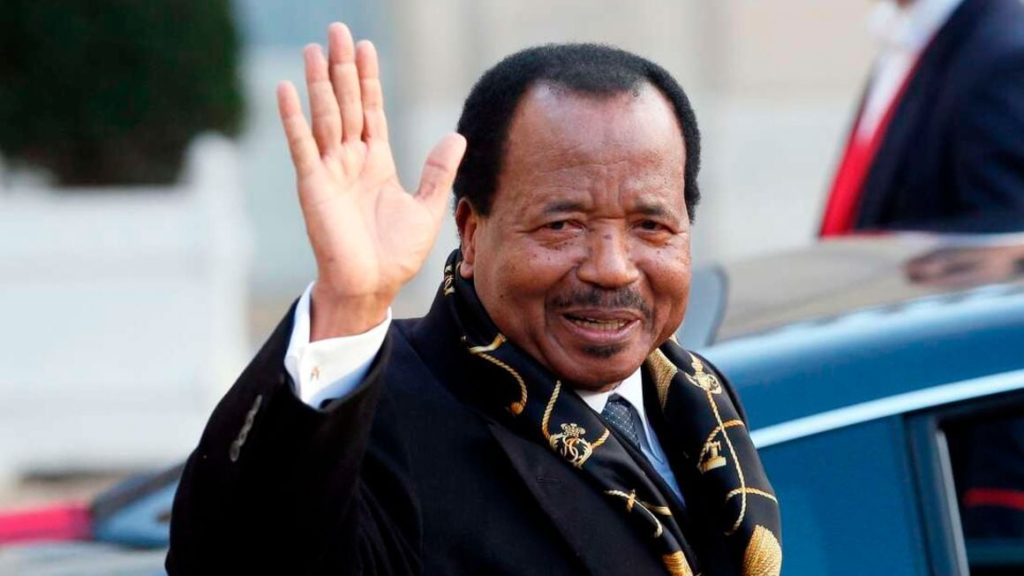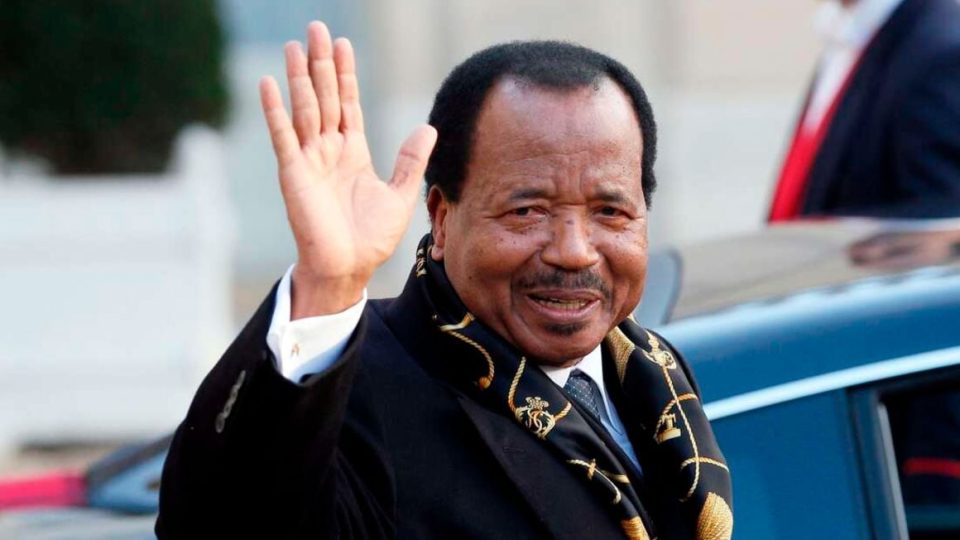When Cameroon holds its next presidential election, Paul Biya will be 93. But the country’s presidency confirmed this week that he will contest on his ruling party’s ticket, as he has done in the past. The East African reports.
Both decisions — to delay the elections by a year and to allow him to contest despite his age — have infuriated opposition politicians in Cameroon. But even these opponents may not be allowed to contest, leaving Biya free to win again.
Here is how he did it: Cameroon’s parliament on Wednesday approved President Biya’s request to postpone the country’s parliamentary and municipal elections until 2026.
The presidency argued that the calendar of political events was crowded and that the polls needed to be delayed to allow some breathing space.
A minority opposition challenged the move, but the country’s 180-member National Assembly is dominated by lawmakers from Biya’s ruling Cameroon People’s Democratic Movement (CPDM) with 152 seats. CPDM lawmakers voted in favour of the bill to extend the mandate of their members for another 12 months when it expires on March 10, 2025.
It is legal in Cameroon to extend the mandate of lawmakers. All that is needed is for the president to ask parliament to approve such a proposal. But for politicians opposed to Biya, this was a landmine.
ALSO READ: Cameroon first daughter hopes coming out will change anti-gay laws
According to Article 121 of Cameroon’s electoral code, only a political party with representation in the National Assembly, Senate, Regional Council or Municipal Council can nominate a presidential candidate. However, an independent candidate can run for the highest office in the land, but must be endorsed by at least 300 dignitaries from each of the country’s 10 administrative regions.
The last time the country held parliamentary and municipal elections, most opposition parties boycotted what they called a farce. It could come back to haunt them now. Cameroon usually holds legislative elections before presidential ones, with the final candidates vying for the top job based on their parties’ performance in the legislative polls.
Prof Maurice Kamto, Biya’s main challenger at the time, who came a distant second in the 2018 presidential election with 14.23 per cent of the total vote, does not have the representation required by law. His Cameroon Renaissance Movement (MRC) party boycotted the 2020 twin parliamentary and municipal elections.
Another challenger, Cabral Libii, 44, one of the youngest candidates who came third in 2018 with 6.28 per cent of the vote, was elected to parliament two years later. But he will have to wait for a court ruling on his fate at the helm of the opposition Cameroon Party for National Reconciliation (PCRN), where he has been at loggerheads with other party officials.
Delaying the elections may ease the burden of an electoral calendar. However, the opposition is likely to sit out the next presidential election, as the delay means that candidates will be based on current formations in the Legislative Assembly.
With parliament’s approval, the president would issue a decree extending the terms of municipal councillors for the same period, in accordance with Article 170(2) of the country’s electoral code. As a result, the election of members of the National Assembly and municipal councillors in the country, which are usually held in twos, will now take place in 2026 — after the presidential elections.
François Bolvine Wakata, a lawmaker and Cameroon’s Minister Delegate at the Presidency in charge of Relations with Assemblies, said the decision to postpone the elections would make it easier for election planners.
“The extension was necessitated by the need to lighten the electoral calendar,” he said.
According to this calendar, the election of members of the National Assembly and municipal councillors, as well as the election of the President of the Republic and regional councillors, will all take place next year.
Organising all four elections in a single year is costly, Wakata argued, saying it is “reasonable” to spread them over two years — 2025 and 2026.
Despite this justification, the opposition sees the extension as a strategy to weaken any challenge to Biya in next year’s vote. Indeed, the opposition has been unable to unseat Biya since he came to power in 1982 following the resignation of the country’s first post-independence president, Ahmadou Ahidjo.
In the country’s first multiparty elections a decade after Biya took office, the late politician Ni John Fru Ndi of the opposition Social Democratic Front (SDF) won more than a third of the vote. But that was the highest total ever achieved by an opposition candidate. Since then, Biya has been a serial winner, scoring at least 70 percent in each election. The most recent was in October 2018, which he won with 71.28 percent, despite opposition reports of habitual rigging in his favour.
Joshua Osih, an opposition lawmaker and national chairman of the SDF party, said delaying the elections was a democratic misstep.
“The SDF is strongly opposed to this mandate extension,” Osih said in the capital, Yaoundé, on Monday. He had come fourth in the 2018 election with 3.35 per cent of the vote, the party’s worst showing in a presidential election since 1992.
Akere Muna, a presidential aspirant who was one of nine candidates in the country’s last presidential election, also criticised the extension, but conceded that the parliamentary approval was legal.
“There is no doubt that the move is designed to frustrate the political ambitions of many,” he said.
“Extending the mandate might be legal but it is undemocratic. The people gave them a five-year mandate. They now turn around and misuse the people’s trust. I accept the possibility of shortening the mandate but extending it is something else.”
Last week, Paul Atanga Nji, Cameroon’s Minister for Territorial Administration, accused Kamto and Cabral of creating chaos ahead of the 2025 elections and warned that this would not be tolerated.
“Any attempt to disrupt the electoral process today or tomorrow shall be dealt with squarely,” Nji said at the opening of the first biennial Conference of Regional Governors in Yaoundé on July 3, 2024.
The bill to extend the National Assembly elections, the Presidency said, was drafted in accordance with Article 15(4) of the Cameroon Constitution, which states that the President may request the National Assembly to decide by law to extend its term of office in the event of a serious crisis or when circumstances so warrant. However, details of the crisis or circumstances have not been made public.
Some politicians now want this part of the law amended to ensure that those in power do not use it as a political strategy.
“At this juncture in the history of our country, it is more than obvious that we are faced with a regime that is desperate,” Muna said.
Cameroon has a recent history of extending the mandates of local elected officials. The bill passed by parliament makes way for the third extension in 15 years.
MPs and municipal councillors elected in 2007 for a five-year mandate benefited from a one-year extension. Their successors elected in 2013 also benefited from an extension, as did those elected in 2020.



